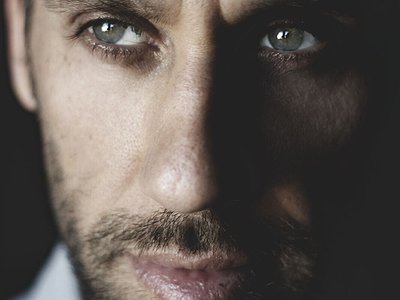Name: Rob Simonson (Echo Society)
Nationality: American
Occupation: Composer, Curator
Recommendations: Big Ears festival in Knoxville and Liquid Music in St. Paul, Minnesota.
Website: If you enjoyed this interview you can find more information about Echo Society on their website
When did you start in a curatorial role - and what or who were your early passions and influences?
When we started the Echo Society in 2013. Before then I had never curated anything beyond my own record collection. I think the passion and inspiration since the beginning has been the seven of us core composers all following our excitement about what would be possible. We had the opportunity to discover it all as we went along. We’ve come to lean on and trust each other more and more as time goes on; it’s group creation and problem solving.
What do you personally consider to be the incisive moments in your work and/or career?
Hearing Miles Davis’ Bitches Brew for the first time. It was a cold rainy night in 1996 and I was packing for a trip with the album playing in the background. The first track opens up and the band vamps for two and a half minutes before Miles comes in and plays a single note. When that first trumpet phrase comes in, I was stunned. I couldn’t believe the notes he was playing and the feelings that it gave me. It lit up my imagination. I remember I stopped packing and just listened, completely captivated. It elicited such a strong reaction for me and flooded me with thoughts and emotions. I wanted to chase after more of that.
I had a lot of other moments like that: Steve Reich’s Music for 18 Musicians, Aphex Twin’s Selected Ambient Music Vol II, Bjork’s Homogenic, and, early on, the Star Wars soundtrack. I think the first time I heard those records I was affected in a way that made me want more of it, to push into and explore those feelings more.
I suppose the next big moment was when I began working for Mychael Danna. That was a huge step forward. He taught and gave me so much opportunities, knowledge, coaching. I owe my career to him in many ways. I think when we collaborated on (500) Days of Summer that set me on a certain course in my own career.
Another big moment was when all seven of the Echo composers went to a concert together. Afterwards we started talking and getting excited about the idea of putting on our own show and what that would be. The Echo Society really started there that night.
How would you describe and rate the music scene of the city you are currently living in and how much does it get featured in your programming?
I think it’s a really exciting time for LA. To me it feels like the dawn of a new era. There are amazing artists of all disciplines moving here in droves it seems. So many arts institutions, galleries, museums and groups are creating amazing art; the city is really alive right now. With Echo we try to explore the city architecturally, bring people to interesting spaces, and to make the space itself part of the experience and performance. LA has so many hidden architectural gems and interesting spaces to make this possible.
There is also such a great electronic and classical tradition here. To be at the cross section of this and curating/creating new work for these blended hybrid ensembles is really exciting for us.
Is objectivity in any way a goal in your own work? What, other than your personal taste, are criteria for defining quality?
I’m always striving for objectivity. I think it’s important to expose ideas and work to others, even if it’s rough and not fully formed; the strong ideas tend to get stronger and the weak ones perish. It’s a creative natural selection process that happens when you expose work to others.
In terms of defining quality, I think it’s ultimately whether or not something lights me up. Goosebumps is always a pretty good indicator.
How would you describe your role in the creative process?
Constantly shifting.
Tell me a bit about your perspective on the selection process for your programming, please. In how far do PR companies, the media and public awareness of an artist or band play a role in programming them? How much room is there in your work for taking creative risks?
Our selection process is pretty simple. We have a running list of artists who inspire and excite us, and people who we think would be a good fit for Echo, and we approach them.
In terms of taking risks, it’s a very important part of what we do. If we’re feeling fear and nervousness about a creative choice, it’s a good indicator that we’re on the right path. We always are trying to push into unknown territory.
Programming music can occasionally lead to deeper insights into the music itself. In which way, do you feel, can curating change the way music and certain styles of music are perceived?
I think when things are curated, they’re bound together under a common creative umbrella and that can cast a different interpretation on a piece or artist. In context of others it can have a different flavour and bring out different qualities. I think trusted curatorial institutions are great for that. Things have been vetted for me, but it’s also about building a trust in that force and thinking “ok they saw something in this I’m going to try it”. Whoever is curating is putting a number of different things together and saying there’s something similar in these, or interesting in the counterpart of their differences. It might be direct, it might be ephemeral, but it adds up to something greater when put next to each other.



